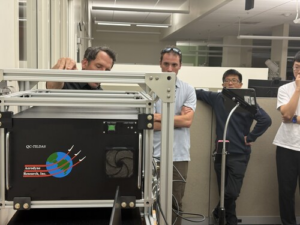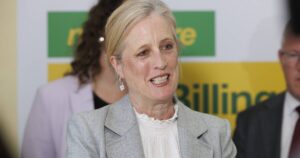
Support for Pauline Hanson’s One Nation has surged to a record high of 12 percent, following weeks of heated debate over immigration. This comes as the Coalition faces a significant slump in popularity, according to the latest Resolve Political Monitor.
Labor continues to hold a substantial 55-45 lead in the two-party preferred measure over the Coalition, maintaining the same margin seen during the May 3 election when Anthony Albanese secured a historic 94 seats in the lower house. Despite Opposition Leader Sussan Ley’s positive performance ratings, the Coalition is grappling with its worst primary result since the Resolve poll began in April 2021.
Shifting Political Landscape
Labor’s commanding lead has slightly diminished from the 59-41 margin recorded last month, as both major parties experienced a decline in support. Labor’s primary vote decreased from 37 percent to 35 percent, while the Coalition’s vote fell from 29 percent to 27 percent, both changes within the margin of error.
The primary beneficiary of this shift is One Nation, whose support rose from 9 percent to 12 percent. Total backing for minor parties, including the Greens, independents, and others, increased by 4 percentage points overall. The Greens saw a slight dip from 12 percent to 11 percent, while support for independents rose to 9 percent.
“The immigration debate is undoubtedly responsible for boosting One Nation’s vote,” said Resolve pollster Jim Reed. “If you’re unhappy with the major parties on the environment, you go to the Greens, and if you’re unhappy about immigration, you go to Pauline.”
Implications of the Poll Results
The poll results indicate a growing discontent with major parties, as primary vote support for minor parties and independents rose to 38 percent, surpassing both Labor’s 35 percent and the Coalition’s 27 percent. This trend reflects a broader shift in voter sentiment, potentially signaling a long-term change in the political landscape.
The findings coincide with the Albanese government’s upcoming climate change policy announcements, including the unveiling of Australia’s interim 2035 emissions reduction target. Prime Minister Albanese is set to travel to Papua New Guinea for its 50th independence anniversary celebrations and then to New York for the UN General Assembly, where he will meet US President Donald Trump with new defense spending commitments.
Leadership Ratings and Political Fallout
Despite the Coalition’s struggles, Sussan Ley’s performance as opposition leader remains favorably viewed by voters. Following the demotion of Liberal senator Jacinta Nampijinpa Price from the shadow ministry after controversial remarks, 41 percent of respondents rated Ley’s performance as good or very good, while 32 percent rated it as poor or very poor. This results in a net positive performance rating of 9 percentage points.
In contrast, Prime Minister Albanese received a mixed assessment, with 44 percent rating his performance as good or very good, but 45 percent viewing it as poor or very poor, leading to a net performance rating of -1 percent.
“We don’t know yet if this is a short-term blip by way of a protest, or a long-term trend,” Reed noted. “The rise of the Greens has taken Labor’s primary vote but gives back on preferences. We might be seeing the same thing starting to happen on the Coalition’s right flank.”
As the political landscape continues to evolve, the coming months will be critical in determining whether these shifts represent temporary fluctuations or a more enduring realignment of voter preferences.







